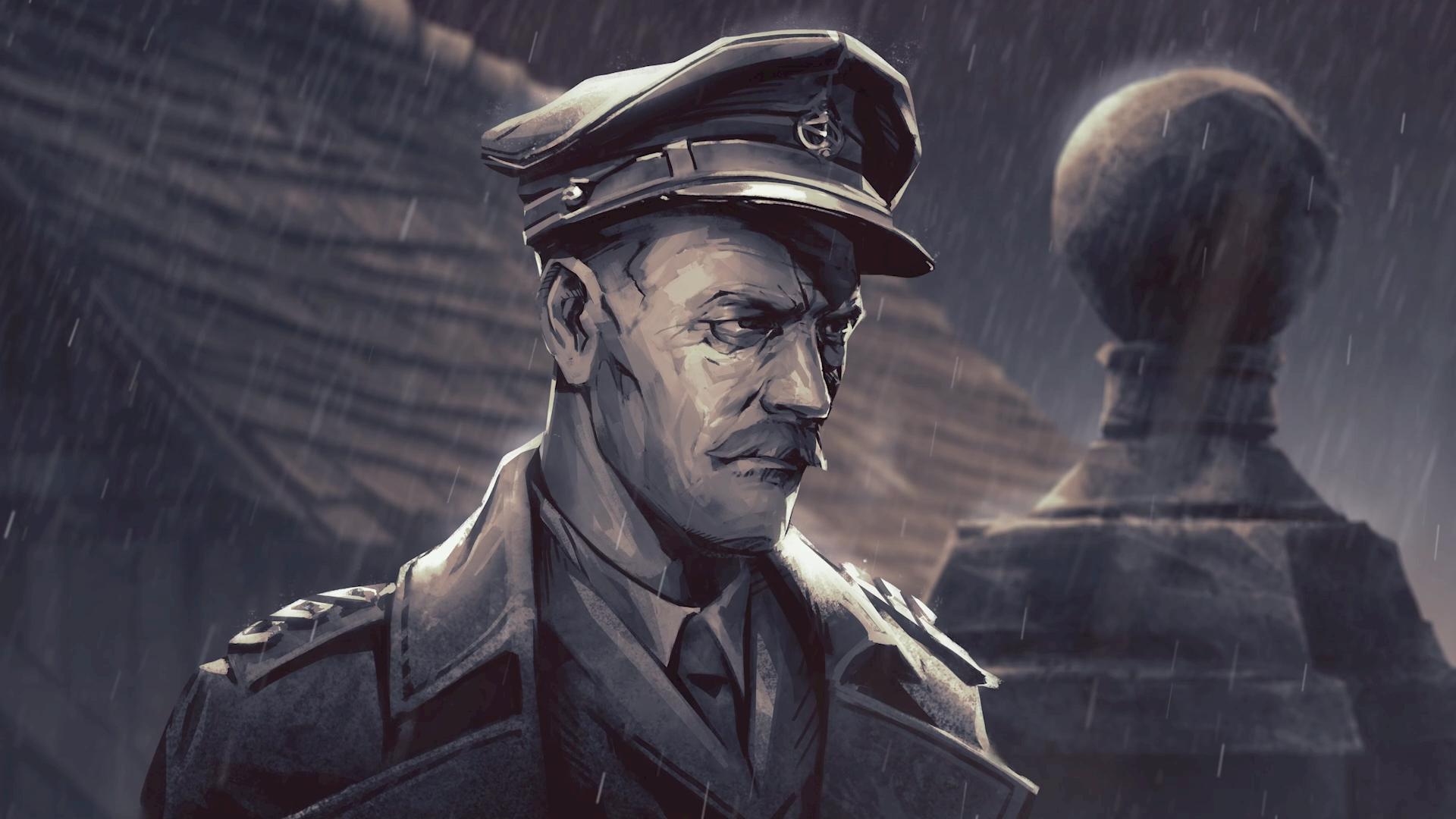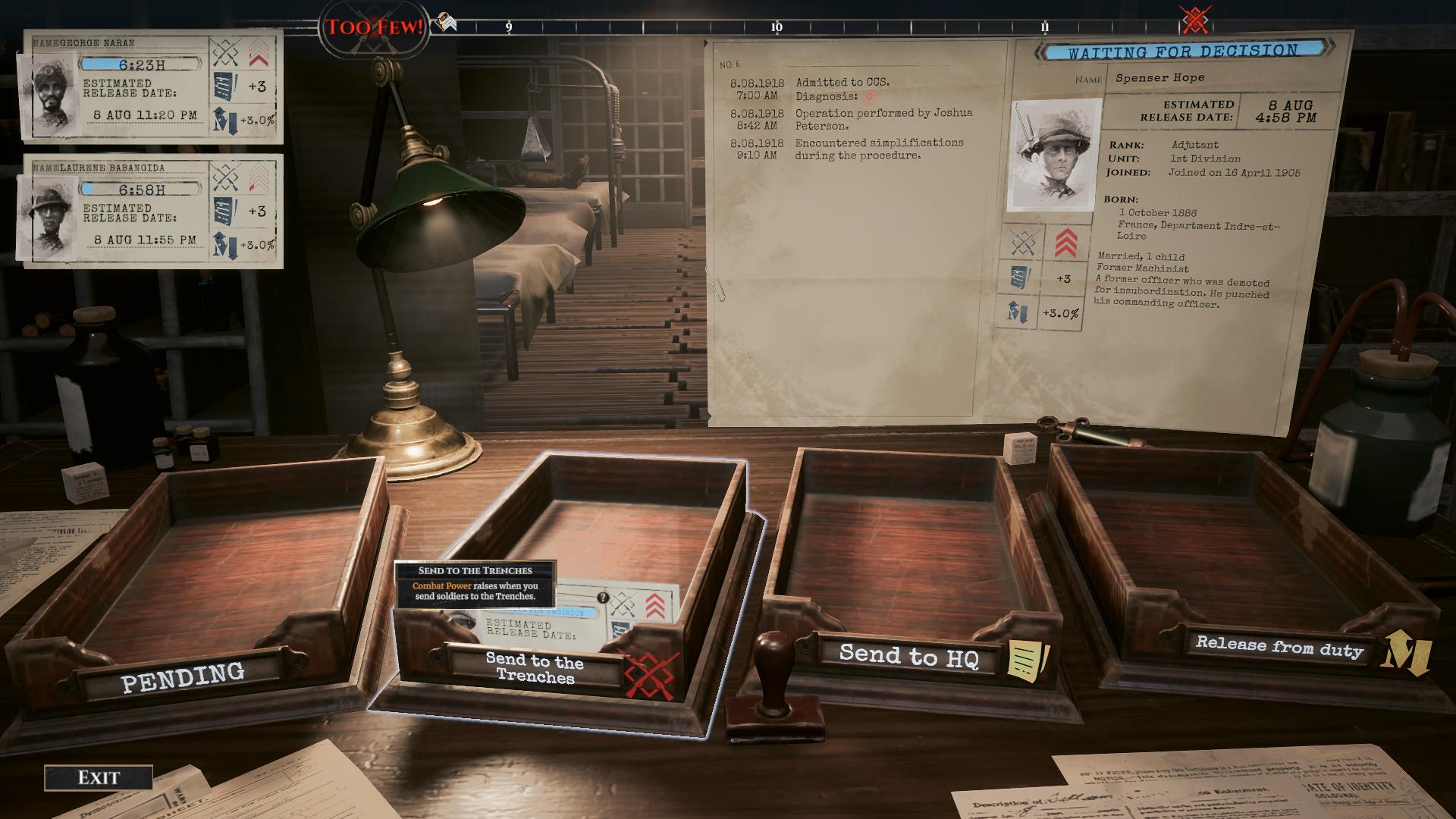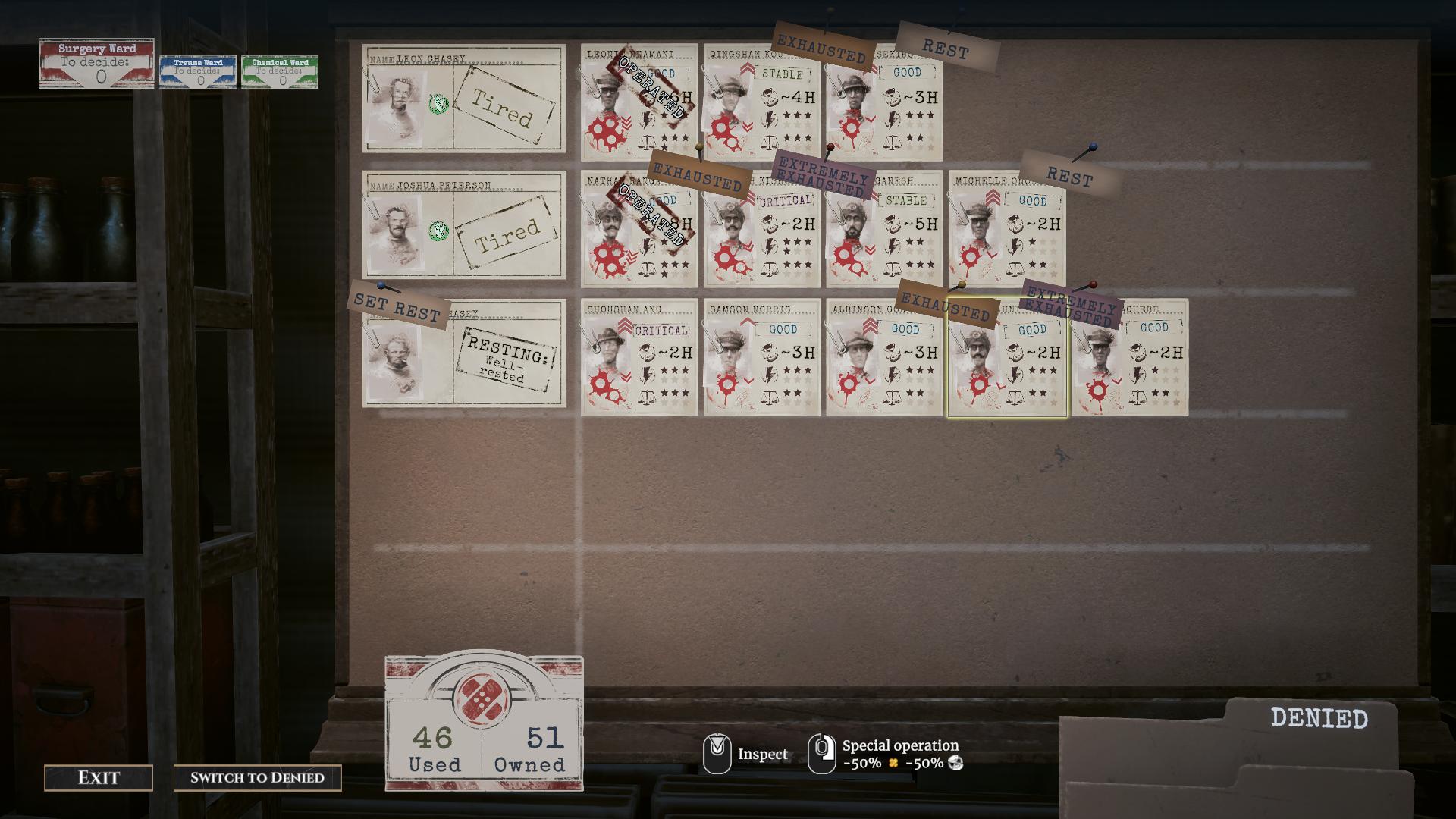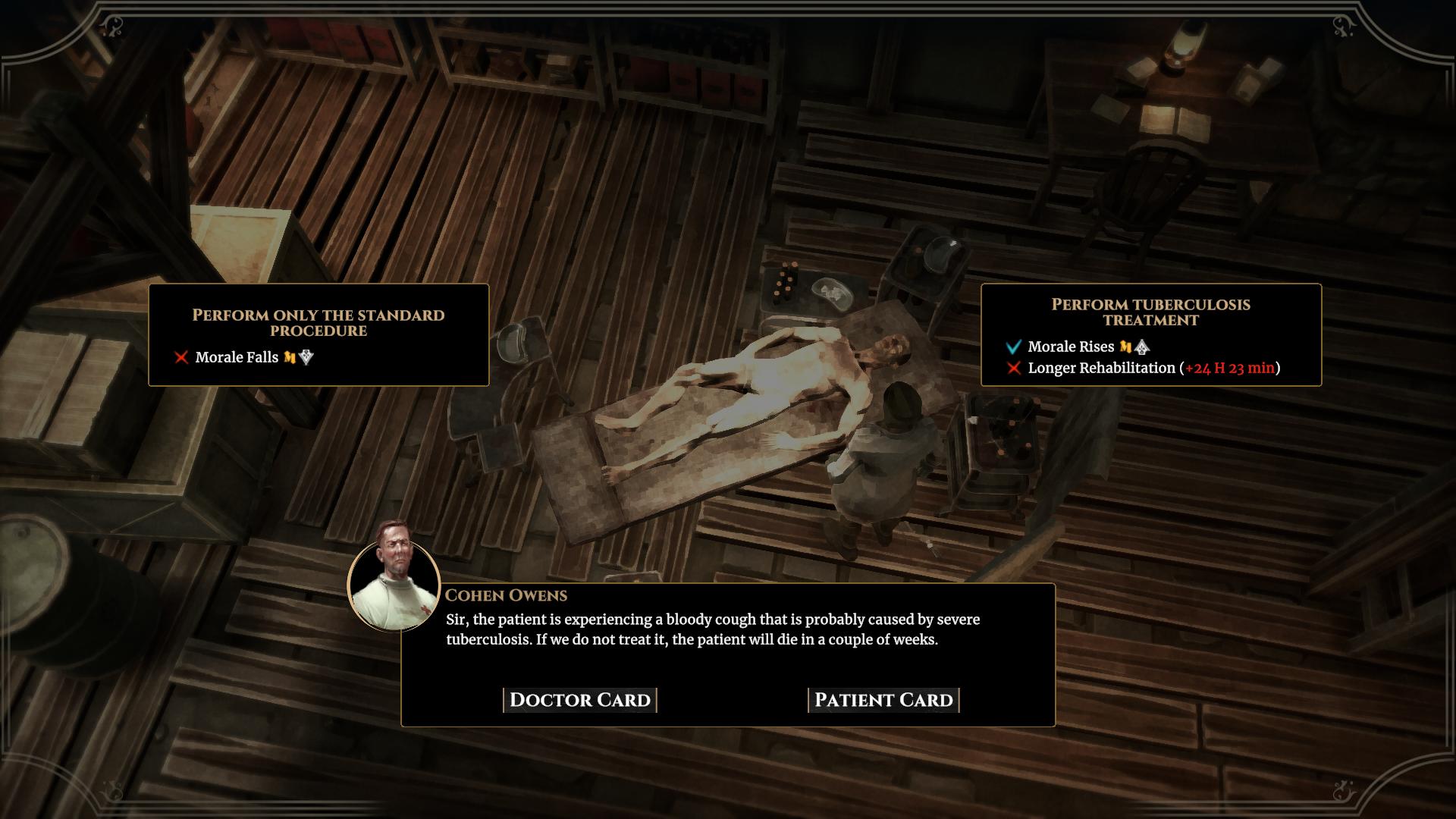
Platform reviewed: PC
Available on: PC, PS5, Xbox Series X|S
Release date: January 11, 2024
I should have turned away the villagers when I had the chance. An exclamation bubble had appeared next to my Casualty Clearance Station, the intake tent for my hospital, and a nurse informed me that the residents of a nearby hamlet had come down with a mysterious illness. I wanted to be the hero, something that rarely ends well in World War 1 strategy game War Hospital.
If I had said no then my staff morale would have taken a hit, and it was already trickling away with each soldier who died on the operating table, but it would have been one swift knock. Now, there are ten villagers all seeking treatment, on top of all the wounded who are arriving from the front after the Germans’ latest push, and my exhausted doctors are running out of medicine.
In the heroic version of this story, there would be a last-minute arrival of much-needed supplies, or the doctors would rally, working through the night to treat every last patient. In War Hospital, a game that’s studied in the Frostpunk school of strategy, there are no free victories. If I push my doctors, they will collapse from the work and not be able to help the next patients who arrive. If I don’t prioritize the soldiers, then I won’t have enough troops to withstand the next assault on our frontlines. If I leave the civilians queued up waiting for care, and they die before they see a doctor, then the morale hit will end my tenure as the hospital’s administrator.

Look closely at the biographies of VIP patients, you may recognise a few of them. I’m glad to say I played a small part in getting Clive Staples Lewis back to England so he can write his Narnia books.
No, instead, I take each one of their patient cards that is waiting in my in-tray and slide it over the denied tray. Each one of them will die without treatment, but because they weren’t in line for a doctor, there’s less of a hit to morale; my staff accepting the civilians were already dead.
There are no easy choices in War Hospital, and as the Major in charge of running the operation, you face each and every one of them. You assign patients to doctors, make choices about their care in the operating room, and, if they survive, you choose where to send them after they have been rehabilitated. If a soldier is still fit to fight, you can send them back to the front line, strengthening your defenses; off to work at HQ, awarding you with a draft point you can trade for resources; or even release them from active service, for a boost to morale.
All of these choices create a sense of responsibility; every soldier who lives is, in part, thanks to you, but you also play a role in every name etched into the memorial in the cemetery.
World Ward

You're always low on something in War Hospital, so you must balance your needs to provide the best care you can. While you can order medicine if you have the draft points, your engineers can produce it in the pharmacy, but engineers are also who you use to upgrade your facilities and produce food. Run out of medicine and your doctors can’t treat anyone, and patients will die as they wait, run out of food and your staff and patients will starve; both outcomes see your morale dropping. If it reaches zero, then your campaign will end.
You also have to contend with the enemy, though only indirectly. German forces periodically attack the frontline just north of the hospital and the effectiveness of their defence is down to how many rehabilitated wounded you send to the front. Send too few and the lines will be overrun and it’s game over.
War Hospital certainly has its weaknesses. Useful information can be hidden away in submenus, there are typos in the text, and the voice acting is uneven. Its biggest failing is that it doesn’t have an autosave function, which became apparent after I hit a bug which meant I had to quit the game, losing an hour’s worth of unsaved play. Even a timed save every ten minutes would be appreciated. But, it speaks to how absorbing a game War Hospital is that I went an hour without even thinking to save.
Meaningful choices

While the systems in War Hospital are simple – even a little blunt when you dissect them – they combine to create poignant choices. My trauma ward is perpetually full, I often lack the resources to produce the meds my patients need, so they sit in long queues waiting to be treated. In one case, I remember a patient who arrived in good condition who I put at the back of the queue, as he would be able to hold out to see a doctor, whereas the patients in critical condition had a more immediate need.
The soldier waited for more than a day, slowly moving up the queue but still hanging in there. I put the engineers working in the pharmacy to produce medicine on a 24-hour shift to try and ease the backlog and it was working. Bit by bit he edged forward.
There is little to help with accessibility in War Hospital. The game does feature subtitles in all cinematics and in-game dialogue, and you can control the game with a gamepad on a PC as well as a console. However, the lack of autosave functionality is particularly unfriendly.
Then, when the patient was next in line for treatment, after his long wait, a VIP case in critical condition arrived. I tried putting the VIP in second place in the queue, but the prognosis told me they would die if they waited, taking the outsize reward I would get for saving their life with them. So I picked up the card of the patient who had waited all day, slid them into the denied tray and let them die, bumping them.
It wasn’t the wrong choice – I used the reward from treating the VIP to buy trauma meds – but it was a meaningful one, and War Hospital is full of them.
For more games like War Hospital, be sure to check out our list of the best PC strategy games. You can find even more varied recommendations on our roundup of the best PC games.







